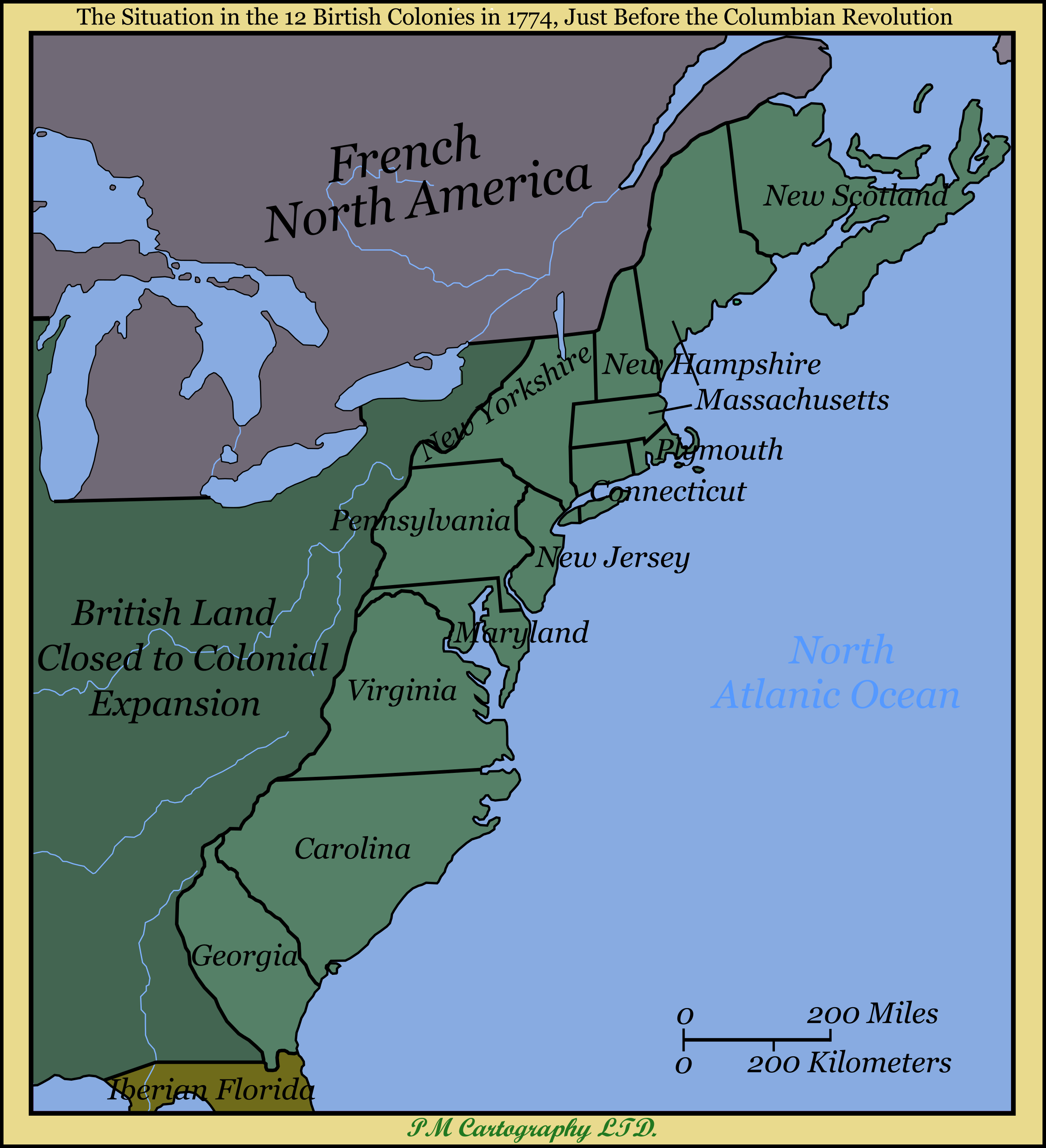HOME | DD
 ThePlainsman — USC: The 12 Colonies
ThePlainsman — USC: The 12 Colonies

Published: 2017-11-24 17:26:50 +0000 UTC; Views: 2504; Favourites: 47; Downloads: 17
Redirect to original
Description
The 12 British colonies in the New World were established to help Britain compete with the other European nations for power and control over the region. They were doing well for themselves, having control over most of Hudson Bay, much of the Eastern sea board as far west as the Rio Grande (OTL Mississippi), and various islands in the Caribbean. Things began to turn south for the British when when they lost to France in the Hudson Bay War (1756-1762), being forced to give Hudson Bay to the French. They also lost some territory in the 12 colonies as well as some land to the west.With Britain in Financial debt because of the war, they implemented taxes on the 12 colonies to help with their debts. They also forbid any further colonization of the Western frontier to the 12 colonies. This angered the colonists, for they thought that they weren't represented at parliament in London, they shouldn't be taxed, not to mention that they felt they weren't responsible for Britain's debts. The colonists organized protests, began settlement of the land closed to expansion, and ways to get around the taxes. Conflicts and tension between the British and the colonists continued to grow between the years since 1762 until in 1774, when it is said that a shot was heard around the world...
Related content
Comments: 6

Basically a reverse outcome of the Battle of Quebec?
👍: 0 ⏩: 1

Not really. I was thinking of this being an alternate war, somewhat similar to the French and Indian War.
👍: 0 ⏩: 0

So let me see if I can list off the differences from out timeline with this one.
1. This timeline still has Massachusetts, New Hampshire, "Rhode Island" (renamed Plymouth), Connecticut, New York, Pennsylvania, New Jersey, Maryland, Virginia, Carolina (North and South) and Georgia.
2. Delaware and Vermont being a part of Pennsylvania and New York respectively. (Though to be fair, Vermont only became the 14th state of the union at a later date than the other thirteen colonies.)
3. Nova Scotia is part of the twelve colonies in this timeline right here.
👍: 0 ⏩: 1

1. New York (renamed New Yorkshire)
2. Yes, but Delaware is also a part of Maryland
3. Yes (renamed New Scotland)
👍: 0 ⏩: 1

1. Wasn't the York in New York already a shortened version of Yorkshire anyways?
2. Now that you mentioned it, those shorter Delaware borders make sense.
3. So basically a literal English translation of the Latin "Nova Scotia" then?
👍: 0 ⏩: 1

First, I just like to say that I took many liberties making this, and dind't mean for this to be realistic. Just a little world I'm building
1. I guess in this world, the colony would be named after the county Yorkshire, as oppose the the town York.
3. Yes
👍: 0 ⏩: 0
























